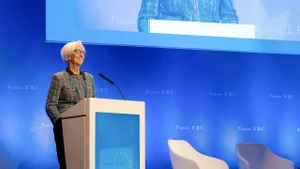After months of controversy, timely discussion in the legislature will give the bill the chance to be passed before the summer break. This is an important step in Germany’s energy transition to achieve the goal of neutralising emissions.
No project of the three-party governing coalition also called the ‘traffic light coalition’, has been as controversial as the bill to phase out old oil and gas heating systems, known as the ‘heating law’. With the new bill, the German government wants to ensure that the goal of climate protection is more effective when heating.
According to the bill, from 2024, every new heating system installed must be operated with at least 65% green energy. However, none of the heaters that are still in service will need to be replaced, while broken ones can also be repaired. This transition will be supported by state funding. In addition, the new bill outlines the implementation plan for the transition period, as well as related strict regulations.
Leaders of the three parties in the ruling coalition are negotiating the amendment to the bill so that it can be discussed soon in the German parliament, but disputes have arisen, especially between the Greens and the FDP, placing the negotiation process in a stalemate and forcing Chancellor Olaf Scholz to intervene. The FDP party in the German parliament demanded earlier that the bill must have a fundamental change, in which more emphasis should be placed on the option of heating with hydrogen as fuel, calling for the maintenance of a ‘modernisation tax’ with fees passed on to the lessee.
However, protecting tenants is a central requirement of the SPD. The Greens have recently proposed several adjustments to the bill, suggesting that the obligation to install climate-friendly heating from 2024 should initially only apply to new buildings, while additional transition time to be given to existing buildings.
The parties agreed to put the new bill on the agenda of the German parliament this week after a meeting between Chancellor Scholz (of the SPD), Vice Chancellor and Federal Minister for Economic Affairs and Climate Action Robert Habeck (the Greens), Federal Minister of Finance Christian Lindner (the FDP) and leaders of the parliamentary group in the governing coalition.
On the morning of June 13, groups of parliamentarians still could not agree on putting the bill on the agenda, but after reaching a consensus in the afternoon of the same day, the bill was put on the working schedule of the German Parliament. Some controversial details will continue to be discussed by the parties to reach a consensus.
In the ruling coalition agreement, the parties agreed to achieve the new bill by 2025. However, in March 2022, under the impact of the energy crisis, the ‘traffic light alliance’ agreed to push for the passage of this bill a year earlier. According to the plan, the new bill will take effect from January 1, 2024. This is a necessary step to promote Germany’s energy transition plan.
According to the Federal Ministry for Economic Affairs and Climate Action of Germany, almost half of the approximately 41 million households in the country have gas heating, followed by oil heating at almost 25% and remote heating at 14%, with the remainder being electric heating or heat pumps. The energy transition will help Germany avoid becoming too dependent on an increasingly scarce gas supply, and at the same time fulfil its commitments to combat climate change.
Since the outbreak of the conflict in Ukraine triggered a gas supply crisis, Germany has accelerated its transition to renewable energy and has set a target of being emissions-neutral by 2045. Along with efforts to develop new and greener technologies, the government’s push to enact a ‘heating bill’ will help fulfil Europe’s leading country’s goal of a fast and sustainable energy transition.
















